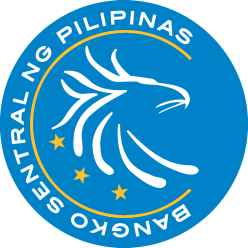001 EXAMINATION BY THE BANGKO SENTRAL
The term “examination” shall refer to an investigation of an institution under the supervisory authority of the Bangko Sentral to determine whether the institution is operating on a safe and sound basis, inquire into its solvency and liquidity, and assess the effectiveness of its compliance function to ascertain that it is conducting business in accordance with laws and regulations.
Regular or periodic examination shall be done once a year, with an interval of twelve (12) months from the last date thereof. Special examination may be conducted earlier, or at a shorter interval, when authorized by the Monetary Board (MB) by an affirmative vote of five (5) members.
In the full exercise of the supervisory powers of the Bangko Sentral, examination by the Bangko Sentral of institutions shall be complemented by overseeing thereof. In this regard, the term “overseeing” shall refer to a limited investigation of an institution, or any investigation that is limited in scope, conducted to inquire into a particular area/aspect of an institution’s operations, for the purpose of overseeing that laws and regulations are complied with, inquiring into the solvency and liquidity of the institution, enforcing prompt corrective action, or such other matters requiring immediate investigation: Provided, That (i) specific authorizations be issued by the Deputy Governor of the appropriate sector of the Bangko Sentral, and (ii) periodic summary reports on overseeings conducted be submitted to the Monetary Board.
a. Scope of examination. Consistent with a risk-based approach to supervision, the scope of examination may include, but need not be limited to, the following:
(1) Appraisal of the overall quality of corporate governance;
(2) Assessment of the risk management system, which shall include the evaluation of the effectiveness of management oversight and self-assessment functions (e.g., internal audit, risk management and compliance); adequacy of policies, procedures, and limits; effectiveness of risk measurement, monitoring and management information system; and robustness of internal controls;
(3) Review of the institution’s operations and overall risk profile;
(4) Evaluation of financial performance, capital adequacy, asset quality, and liquidity; and
(5) Any other activity relevant to the above.
b. Conduct of examination. The conduct of examination shall include, but need not be limited to, the interview of any bank’s directors, officers and personnel; and the verification, review and evaluation of documents and records, including making copies of the records, taking possession thereof and keeping them under the custody of the Bangko Sentral after giving proper receipts thereof.
For this purpose, “records” shall refer to information, whether in its original form or otherwise, including documents, signatures, seals, texts, images, sounds, speeches, or data compiled, recorded or stored, as the case may be: (1) in written form on any material; (2) on film, negative, tape or other medium so as to be capable of being reproduced; or (3) by means of any recording device or process, computer or other electronic device or process; and regardless of whether these information are stored and kept by the Bangko Sentral supervised Financial Institution (BSFI) or another entity duly authorized by the BSFI (e.g., technology service provider). Records shall also include audio, photographic, and video evidence of events, acts, or transactions of the BSFI, including all records of communication, oral (e.g., voice recordings) or written (e.g., letters) of officers and employees of the BSFI: Provided, That the recording was made in connection with the performance of the official functions of the concerned officers or employees and coursed through BSFI-issued computers, telephones, mobile phones, and similar devices.
(Circular No. 957 dated 17 April 2017, 894 dated 07 December 2015 and Circular No. 862 dated 17 December 2014)
Refusal to permit examination. Any act or omission that impedes, delays or obstructs the duly authorized Bangko Sentral examiner from conducting an examination of a BSFI, including the act of refusing to accept or honor the letter of authority to examine presented by the examiner of the Bangko Sentral, shall be considered as a refusal to permit examination.
The refusal of the BSFI to permit examination shall be reported by the Bangko Sentral examiner to the Head of the appropriate supervision department of the Bangko Sentral, who shall forthwith make a written demand upon the BSFI concerned for such examination. If the BSFI continues to refuse the said examination without any satisfactory explanation thereof, a report on such refusal shall be submitted by the Bangko Sentral examiner concerned to the said Department Head.
Sanctions. A bank that wilfully refuses to permit examination shall pay a fine of P30,000 per day from the day of the refusal and for as long as such refusal lasts, without prejudice to the sanctions under Section 34 of R.A. No. 7653.
The fine shall be imposed starting on the day following the receipt by the concerned Head of supervision department of the report from the Bangko Sentral examiner that the bank continues to refuse to permit examination notwithstanding the written demand made by the Department Head.
Aside from the fine mentioned above, the bank and/or its concerned directors and/or officers may be subject to non-monetary sanctions provided under Section 37 of R.A. No. 7653 (The New Central Bank Act) and Sec. 002.
(Circular No. 957 dated 17 April 2017)
